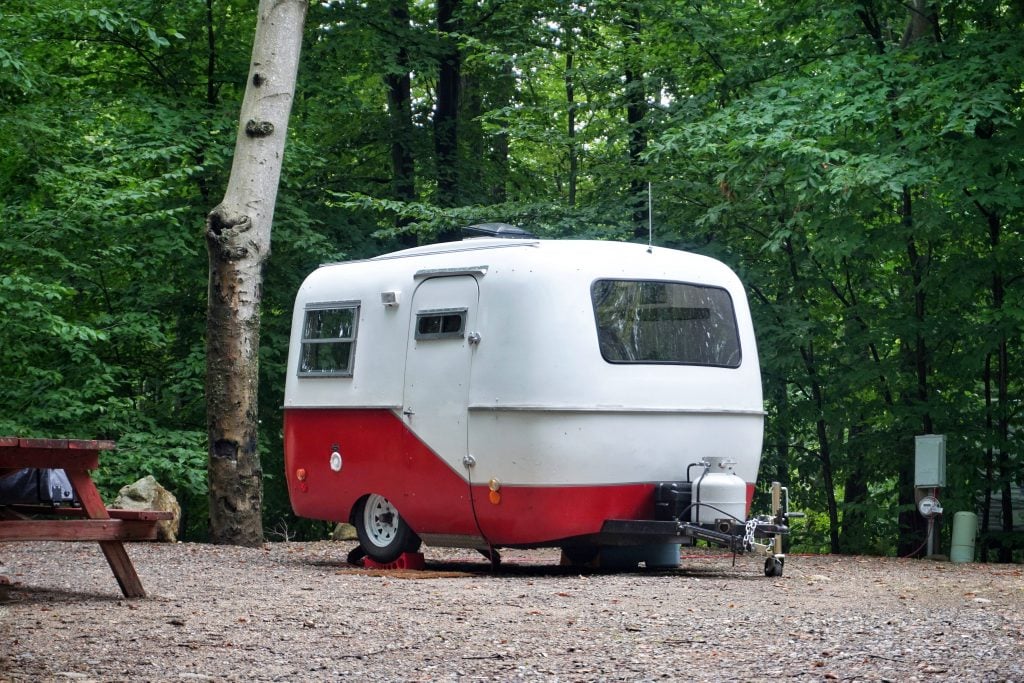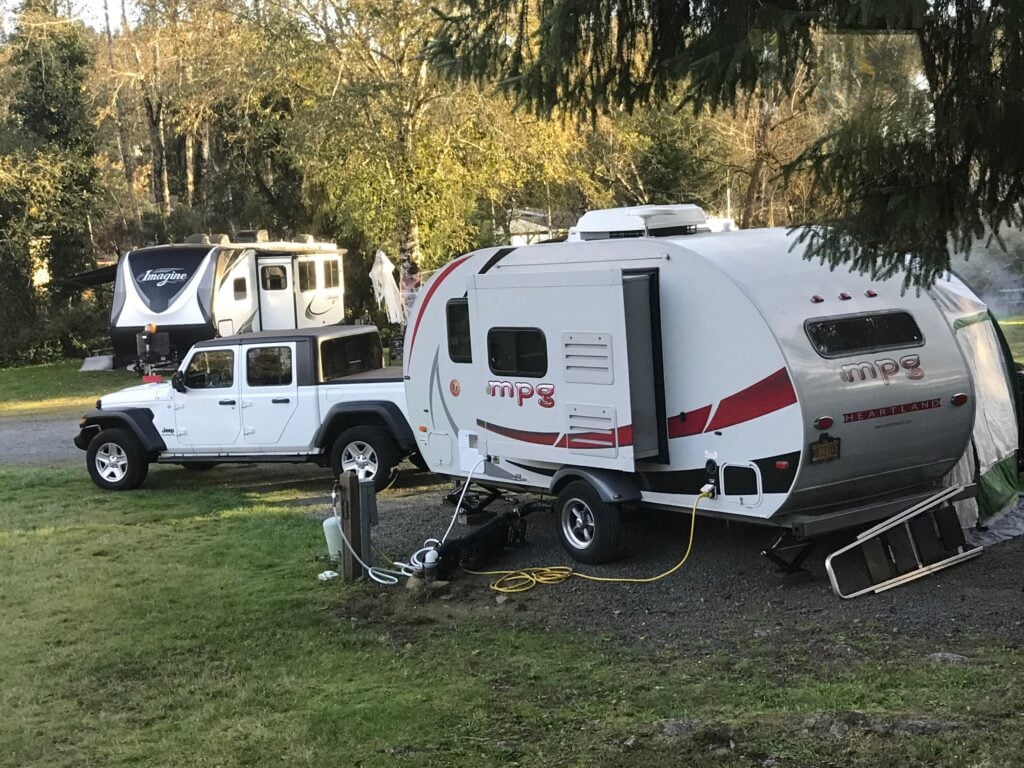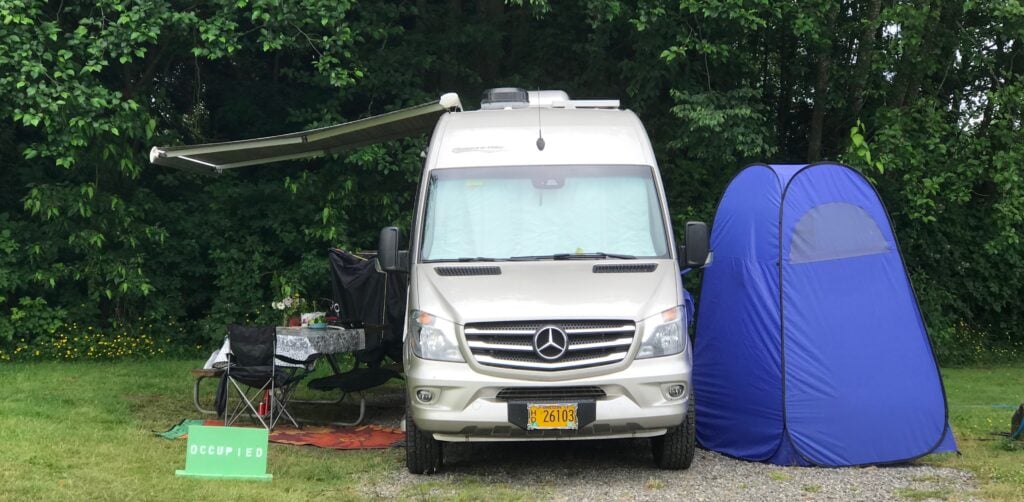Is Living In A Camper A Good Idea

The Pros And Cons Of Living In A Camper Full-Time
Living in any RV requires a commitment to a more minimalistic lifestyle whether you're in a 45-foot diesel pusher or a small truck camper or camper van.
There are a couple of reasons a trailer or camper might not be the best choice for full-time living, but it's worth noting that NO recreational vehicle is built and sold for the purpose of becoming a full-time residence. If you talk to the manufacturers and dealers, they all affirm that RVs are built for periodic leisure use only. Living in an RV full-time puts much more pressure on every system in the rig. The electrical, plumbing, heating, insulation, tanks, and structural framework will all be stressed when in use all day every day.
This continuous use and additional pressure is what makes living in a camper vs a motorhome more problematic. Let's face it, campers are built to fit into the budgets of a larger share of the market, meaning they are more affordable, but to fit into that lower price range they need to be built fast and cheap. That translates to lower quality components and construction protocols that focus more on quantity than quality.

Campers are small, easy to maneuver and park, but lack storage space. Photo by P. Dent
Cons of living in a camper full-time
Smaller components
Another limitation of living full-time in a camper compared to living full time in a larger motorhome is the size of many of the components in the camper. The propane tanks (if they even exist) are usually small portable tanks that need to be refilled often, the refrigerator and freezer may be quite small, and the freshwater tank, black, and gray holding tanks have limited capacity.
Many campers do not have a generator, so living full time in those campers will require a connection to shore power for electricity or the camper will need to be modified with solar panels and a battery system or use a portable generator.
Be prepared for all kinds of weather
Let's face it, when you live in an RV you will need to take a few more things with you than when you just go camping on a weekend trip or a short vacation. You might need all weather gear, chains for the truck or trailer, extra coats, blankets, and boots.
You could be camping in the snow or on the edge of a hurricane and it's not like you can just drive back to your house and wait out the storm. You need to be able to endure whatever nature throws at you.

Not all days are sunny when you live in a camper. Full-timers need to be prepared for everything. Photo by P. Dent
Sure, you're living in a house on wheels, so you should be able to drive away from approaching bad weather but this is not always possible. For example, the recent Polar Vortex that dropped below freezing temperatures from one coast to the other resulted in virtually the whole country suffering in below freezing ice and snowstorms. This storm knocked out power to millions including thousands of full-time RVers who got caught in this dangerous weather.
As full-time RVers, sometimes the only option is to batten down the hatches and endure the inclement weather. But this may be a life-threatening experience in a camper if you don't have enough extra clothes or blankets, no propane heat option, and the power is out where you're camping. Having larger storage capacity in your full-time recreational vehicle literally could save your life.
Limited RV storage space
Beyond having enough storage space for seasonal clothes and bedding, you also may want to take your recreational accessories with you like your bikes, kayaks, fishing gear, photo equipment, and backpacks. All that extra gear that you would normally store at your home now needs to be packed and stored in (or on) your RV.
And the storage issue is not limited to outdoor equipment or weather-related supplies. What about extra food? When you live in a camper, you're not packing food for just a weekend getaway. You're packing all the food and cooking utensils for everyday meal preparation and there are times when you may be a hundred miles or more from the nearest store.
With a very small refrigerator and freezer, you'll need to rely on dry goods or canned foods, but all of it takes up space and many campers are short on storage space. If you're willing to park your rig near an urban center, you could eat out more often or purchase smaller quantities more frequently, but you can't always be that close to a grocery store.
Over the past 20 years of RVing, we have camped in dozens of places that just didn't have any nearby restaurants or groceries. We ate what we had with us and that was all. If you're in a small truck camper, camper van, or pop-up trailer, you may not have enough storage to sustain a comfortable full-time lifestyle.

Even with a wet bath, campers may need an exterior shower arrangement. Photo by P. Dent
Pros of living in a camper full-time
Easier maneuverability
There are a few pros to choosing a camper for full-time living. The biggest advantage is that campers are more nimble than large motorhomes and fifth wheels. They can go anywhere a car can go. Campers fit into any campground or RV park and are easy to park in a parking lot of any store while restocking the rig.
If you have a truck camper, you can even remove it from the truck and use the truck without breaking down your camp to fetch supplies. There's no need to tow a second vehicle unless you want to tow a trailer or boat. We encountered a full-time RVer that lives in a camper van and tows an enclosed trailer. She manages all her storage issues by loading the trailer with the extra gear and supplies she needs for her full-time adventure.
More affordable
The other pro of choosing a camper for your full-time adventure is that most of them cost less than a motorhome or fifth wheel. Having said that, I have to acknowledge that some of the camper vans can be as expensive as many Class A and C motorhomes.
Some campers that are in the larger hard-sided trailer category can also be nearly as expensive as smaller Class C motorhomes. We are currently camped next to a hard-sided trailer that is only a few feet shorter than our 38-foot motorhome and the couple who lives in that trailer seem to be well supplied and content with their rig.
Will a small camper meet your personal full-time RV goals? That depends on you! It depends on your attitude, and your willingness to leave unnecessary material possessions behind to embrace a minimalist viewpoint and to be comfortable in confined spaces. It will depend on your willingness to embrace an outdoor lifestyle and ultimately whether you will be content with your choices.
Drivin & Vibin shares some great tips from their experience in living in small camper full-time in the video below:
Continue reading: The Dirty Truth Of Full-Time RVing

I am an author and writer, my partner is a web designer. We are full time RVers traveling around the US and Canada. We've been RVing for over 20 years and we've traveled more than 130,000 miles in an RV.
Is Living In A Camper A Good Idea
Source: https://rvlife.com/living-in-a-camper-full-time/


0 komentar:
Posting Komentar